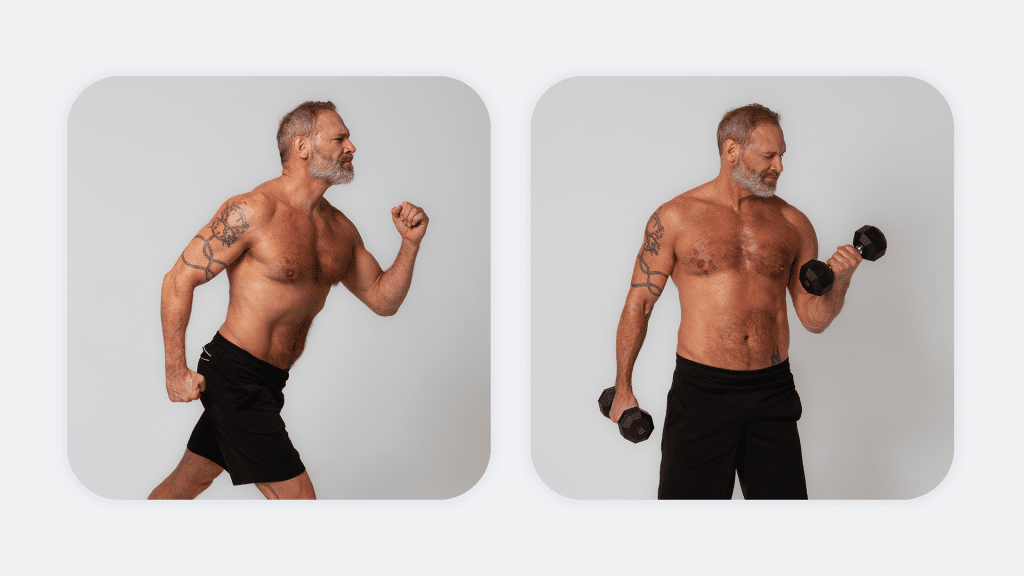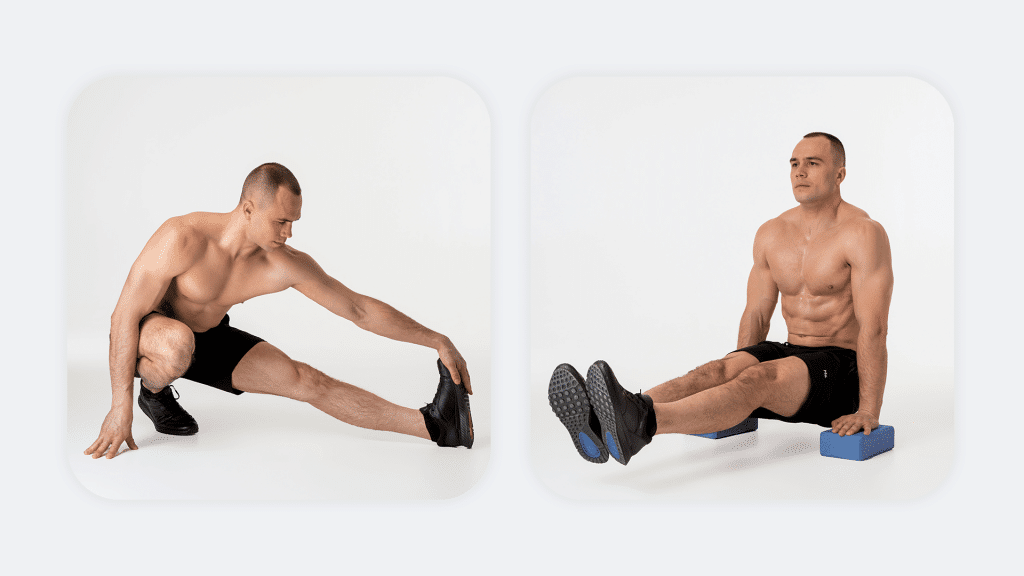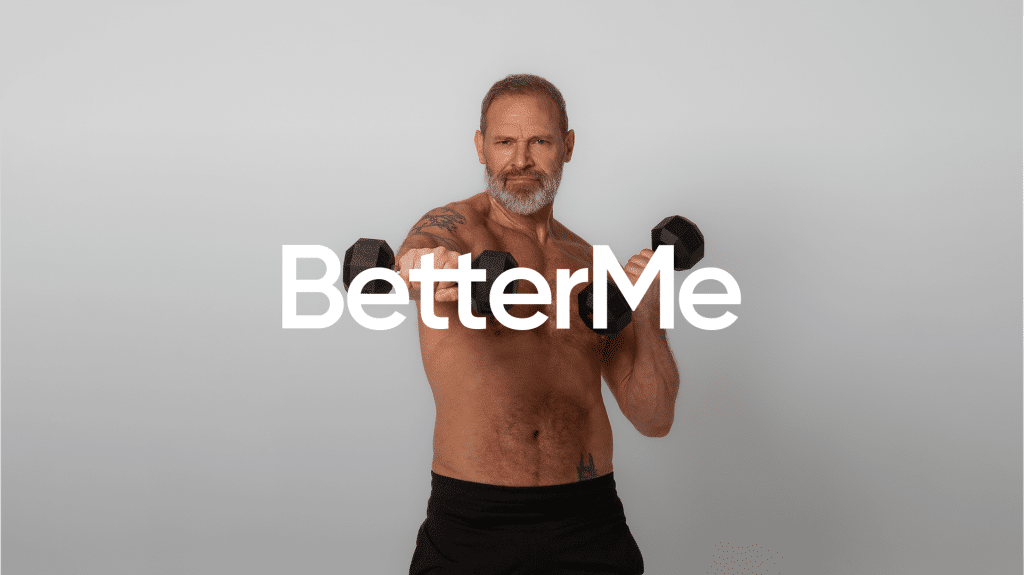You’re here because you’re curious about Calisthenics, what it is, whether it will work for you, and how you can get started with a basic calisthenics workout. These exercises have a long and fascinating history that dates back to ancient Greece where they were used to condition soldiers and athletes.
Today, calisthenics has been rediscovered as a holistic approach to fitness that utilizes body weight to build strength, flexibility, and endurance.
This guide is designed specifically for beginners like you who are intrigued by the idea of a workout regimen that doesn’t require expensive gym memberships or any fancy equipment. Instead, it covers a basic calisthenics workout with no equipment that can be done anywhere, anytime, with just your body and your determination.
We’ll explore the foundational exercises, proper form, and how to structure a routine that fits your specific needs and goals. So, if you’re ready to take control of your fitness journey in a way that is effective, sustainable, and adaptable, here’s what you need to know.
What Are The Basic Moves In Calisthenics?
With a focus on taking control of your body through movements such as pulling, pushing, bending, jumping, or swinging, a calisthenics workout at home can be an effective and convenient way for improving your overall fitness.
Betterme will keep you laser-focused on your weight loss journey! Nutrient-packed meal plans, fat-blasting workouts, galvanizing challenges and much more. Try using the app and see for yourself!
This form of exercise strengthens and tones muscles while also enhancing flexibility, agility, and balance. Let’s explore 10 basic calisthenics moves that are perfect for beginners.
These exercises form the backbone of a simple calisthenics workout plan. As a beginner, you can start with these beginner calisthenics workout plans at home to build a solid foundation before you progress to more advanced exercises.
Assisted Pull-Ups
Pull-ups are a fundamental calisthenics move that targets the upper body, particularly the back, shoulders, and arm muscles. A strict bodyweight pull-up requires significant upper-body strength. Therefore, assisted pull-ups allow beginners to perform the movement while developing strength. It’s one of the most powerful exercises you can do and offers a range of benefits from improved upper-body strength to better grip strength.
To perform a pull-up:
- Loop a resistance band around the pul-bar. Grab the bar with your palms facing away from you.
- Hang freely with your arms fully extended and place your foot on the band, with your other foot on top to anchor it.
- Pull yourself up by pulling your elbows down toward the floor
- Keep going until your chin is above the bar
- Lower yourself until your arms are straight again
- Repeat
Push-Ups
Push-ups are a staple of any 10 calisthenics exercises list. They primarily target the chest, triceps, and core muscles. Push-ups are excellent for building upper-body strength and can be easily modified to suit different fitness levels. Performing them from your knees can be a suitable starting point for beginners.
To perform a push-up:
- Start in a high plank position
- Lower your body until your chest almost touches the floor
- As you lower, keep your body in a straight line
- Push your body back up
- Repeat
Squats
Squats are a beginner calisthenics move that works out the entire lower body. They engage the quadriceps, hamstrings, calves, and glutes, in addition to the core muscles. Squats promote lower-body strength and flexibility.
To perform a squat:
- Stand tall with your feet hip to shoulder-width apart
- Lower your body as if you’re sitting back into a chair
- Continue lowering yourself until your thighs are parallel to the ground
- Push back up to the starting position
- Repeat
Lunges
Lunges are a basic calisthenics workout exercise with no equipment needed. They target the quads, hamstrings, glutes, and calves. Lunges are great for improving balance, coordination, and stability.
To perform a lunge:
- Stand upright, feet hip-width apart
- Take a step forward with one foot
- Lower your body until your front knee is at a 90-degree angle
- Push back up and return to the starting position
- Repeat on the other side
Crunches
Crunches are a basic calisthenics workout for beginners, primarily targeting the abdominal muscles. They are beneficial for building core strength and stability.
To perform a crunch:
- Lie on your back
- Bend your knees and plant your feet on the ground
- Place your hands behind your head
- Lift your upper body off the floor
- Lower back down
- Repeat
Assisted Chin-Ups
Chin-ups are similar to pull-ups, but with a slight variation. They are part of a basic calisthenics workout plan targeting the biceps, back muscles, and shoulders. Chin-ups are excellent for enhancing grip strength and improving upper-body muscle definition.
To perform a chin-up:
- Loop a band around the bar.
- Grab the bar with your palms facing toward you
- Place your foot on the band and anchor your other foot on top
- Hang freely with your arms fully extended
- Pull yourself up until your chin is above the bar
- Lower yourself back down until your arms are straight
- Repeat
High Planks
Planks are an essential part of any calisthenics workout, primarily targeting the core while also working the shoulders, arms, and glutes. This exercise helps build endurance in the abdominal muscles and stabilizes your core.
To perform a plank:
- Start in a high plank position, with your hands directly under your shoulders
- Engage your core and ensure your body forms a straight line from your head to your heels
- Hold this position for a predetermined length of time
- Repeat
Dips
Dips are an upper-body workout that targets the triceps, chest, and shoulders. They are great for improving upper-body strength and can be performed using parallel bars, a bench, or simply the edge of a bed.
To perform a dip:
- Position yourself between parallel bars, gripping them firmly or with your palms on the edge of a bench.
- Lift your body off the ground, keeping your elbows straight
- Lower your body by bending your elbows until your upper arms are parallel to the floor
- Push yourself back up to the starting position
- Repeat
Mountain Climbers
Mountain climbers are a full-body calisthenics exercise that works multiple muscle groups including the core, chest, and legs. This move strengthens these muscles while also boosting cardiovascular fitness.
To perform mountain climbers:
- Start in a high plank position
- Quickly draw one knee up to your chest
- Return your foot to the starting position
- Repeat with the other leg
- Continue alternating legs as if you were running for weight loss
Jumping Jacks
Jumping jacks are a simple yet effective full-body workout that improves cardiovascular fitness and enhances muscle endurance. This exercise primarily targets the heart rate but also engages the legs, core, and deltoids.
To perform jumping jacks:
- Stand upright with your feet together and arms by your sides
- Jump and spread your feet out wide while swinging your arms above your head
- Jump again, returning to the starting position
- Repeat
Burpees
Burpees are a full-body calisthenics exercise that are a combination of squats, push-ups, and jumps in one powerful move. They work the arms, back, chest, core, glutes, and legs while also improving cardiorespiratory fitness.
To perform a burpee:
- Stand with your feet shoulder-width apart
- Lower yourself into a squat position and place your hands on the floor in front of you
- Jump your feet back into a plank position
- Lower your chest to perform a push-up
- Jump your feet back in toward your hands
- Explode upwards into a jump
- Land softly and immediately start your next rep
Read more: 7 Upper-Body Calisthenics Exercises That Will Transform Your Workout.
What Is The Easiest Calisthenics Exercise for Beginners?
The easiest calisthenics exercise for beginners is typically the bodyweight squat. This exercise is excellent for building lower-body strength and specifically targets the quadriceps, hamstrings, and glutes. Bodyweight squats are also beneficial for improving balance, mobility, and coordination.
No special equipment is required and they can be performed virtually anywhere, which makes them a convenient addition to any workout routine. In addition, the difficulty level of body weight squats can be easily adjusted as your fitness level improves. This can be done by increasing the number of repetitions or adding a jump for an additional cardio challenge.
In addition to the typical step-by-step instructions for performing a bodyweight squat, the tips below will help ensure that you perform the exercise correctly:
- Find your optimal foot position; set your feet hip to shoulder-width apart – this helps maintain balance and allow for optimal range of motion.
- Push through your whole foot – this will ensure an even distribution of weight and promote maximal lower body strength as you maintain full contact with the ground.
- Bring your arms forward as you squat down – this can help maintain the correct position and balance and keep your core engaged
- Squeeze your glutes as you stand back up – this helps activate the muscles in the lower body and ensures good posture is maintained
- Keep your spine neutral and chest up throughout the exercise – this will help maintain the optimal position through the movement to achieve a full range of motion.
Is 30 Minutes of Calisthenics Enough?
Yes, 30 minutes of calisthenics can be enough, depending on your fitness goals and the workout intensity. If you’re short on time but still want to exercise, a 30-minute high-intensity calisthenics workout can be incredibly effective.
Calisthenics exercises use your body weight for resistance, which allows you to challenge various muscle groups with minimal equipment (4). This makes maintaining a high intensity throughout the workout possible, which can have significant benefits, even in a short period of time.
However, it should be noted that the effectiveness of a 30-minute workout is largely dependent on the effort you put into it. You must stay focused and ensure you perform each exercise with the proper form for maximum benefit.
While 30 minutes may be enough to maintain general fitness, you may need to commit more time if you have specific goals such as building muscle or improving athletic performance.
More importantly, a 30-minute workout four times a week can provide greater benefit than a longer session that is done less frequently. You should always listen to your body and adjust your workout routine as required to keep challenging yourself and avoid plateaus.
How Do Beginners Start Calisthenics?
Starting calisthenics requires enthusiasm, but it also demands a clear understanding of the exercises, your body’s capabilities, and a well-structured plan. Here are detailed, actionable steps that are specifically tailored for beginners who are embarking on their calisthenics journey.
Step 1: Set Specific Calisthenics Goals
Instead of a general “get fit” goal, you need to specify what you want from your calisthenics journey. Do you want to achieve more muscle, hold a 30-second handstand, or perform 20 consecutive pull-ups? Setting specific, measurable, achievable, relevant, and time-bound (SMART) goals will give you a clear direction and make your progress more measurable.
Step 2: Self-Assessment of Physical Capabilities
You must assess your current physical strength and flexibility. Try simple exercises such as push-ups, sit-ups, and squats, and see how many you can do with proper form (2). Make a note of these numbers as they will serve as your baseline data for tracking progress.
Step 3: Learn the Calisthenics Fundamental Moves
You should start to learn the basic calisthenics moves – squat, push-up, pull-up, dip, and lunge. These exercises form the core of the majority of advanced calisthenics movements. You can use online tutorials or even hire a trainer to ensure your form is correct. Incorrect form can result in injuries and also hinder your progress.
Step 4: Design Your Personalized Workout Plan
A workout plan that is based on your goals and current fitness level should be designed. If your goal is to master pull-ups, your routine should include exercises that strengthen the back and arm muscles such as inverted rows or assisted pull-ups. It’s important to remember that your workout should be challenging but achievable.
Consistency is incredibly important when it comes to seeing results from calisthenics, so you should develop a workout routine that you can stick to. This could involve working out on specific days of the week or at specific times of the day.
BetterMe App helps you achieve your body goals with ease and efficiency by helping to choose proper meal plans and effective workouts. Start using our app and you will see good results in a short time.
Step 5: Incorporate Progression Techniques
In calisthenics, progression is key (3). Once you’ve mastered a basic move, you should aim to increase the difficulty by increasing the reps, adding holds, or advancing to a harder variation of the movement. For example, after you’ve mastered regular push-ups, you could increase the difficulty by slowing down the lowering phase, pausing at the bottom, or working towards archer push-ups or one-arm push-ups. This gradual progression will keep your workouts challenging while also ensuring continuous improvement.
Step 6: Implement Active Recovery Days
Active recovery plays a crucial role in any fitness routine (1). These are the days when you perform light movements such as stretching, walking, or yoga to promote blood flow and speed up muscle recovery without putting any strain on your body. This can help prevent burnout and reduce the risk of injury.
While it’s important that you push yourself, listening to your body is of equal importance. If you feel overly fatigued or experience pain during an exercise, you should take a break or modify the exercise as required. You must remember that the goal is to improve your fitness, not to risk injury.
Step 7: Document Your Journey
Keep a workout log to document your workouts, progress, and how you feel during each session. This will keep you accountable and also help you understand your body better. In addition, it can be incredibly motivating to look back and see how far you’ve come.
However, starting calisthenics is not about instant results; it’s a journey of improving your strength, flexibility, and control over your body. You must be patient with yourself, celebrate small victories, and enjoy the process. Through consistent effort, you are certain to see remarkable improvements over time.
FAQs
What calisthenics move should I learn first?
As a beginner, you should initially focus on mastering the basic calisthenics moves: squats, push-ups, pull-ups, and lunges. These exercises form the foundation of calisthenics and will help build the strength and endurance that is required for more advanced moves.
How long should a beginner do calisthenics?
Beginners should aim to do calisthenics for approximately 20-30 minutes per session, three to four times each week. This provides enough time to work on the basic moves while gradually building strength and endurance. As your fitness level improves, the duration and intensity of your workouts can be increased.
What is a good age to start calisthenics?
You can start calisthenics at any age as it’s a highly adaptable form of exercise that can be modified to suit different fitness levels and abilities. Make sure to consult your doctor beforehand.
Read more: Home Calisthenics Workout: Achieve Fitness Goals with Minimal Equipment.
The Bottom Line
Whether you’re following a bodyweight workout plan for beginners or a calisthenics workout plan for beginners, these basic moves will help you along your journey toward better fitness.
It is important to keep in mind that taking it slow and performing all exercises correctly is paramount to staying safe and avoiding injury.
As you become stronger, you should challenge yourself further by gradually increasing difficulty levels or including more complex exercises.
DISCLAIMER:
This article is intended for general informational purposes only and does not serve to address individual circumstances. It is not a substitute for professional advice or help and should not be relied on for making any kind of decision-making. Any action taken as a direct or indirect result of the information in this article is entirely at your own risk and is your sole responsibility.
BetterMe, its content staff, and its medical advisors accept no responsibility for inaccuracies, errors, misstatements, inconsistencies, or omissions and specifically disclaim any liability, loss or risk, personal, professional or otherwise, which may be incurred as a consequence, directly or indirectly, of the use and/or application of any content.
You should always seek the advice of your physician or other qualified health provider with any questions you may have regarding a medical condition or your specific situation. Never disregard professional medical advice or delay seeking it because of BetterMe content. If you suspect or think you may have a medical emergency, call your doctor.
SOURCES:
- Active recovery for productive rest days (n,d,activesgcircle.gov.sg)
- Measuring Physical Capacity: An Assessment of a Composite Measure Using Self-Report and Performance-Based Items (2016,nih.gov)
- Progression of volume load and muscular adaptation during resistance exercise (2014,nih.gov)
- The advantages of body-weight exercise (2022,harvard.edu)











